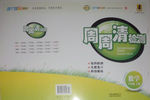题目内容
More natural resources should be made use of ________ the ________ need of energy.
meeting; increasing
to meet; increased
meeting; increased
to meet; increasing

 浙江新课程三维目标测评课时特训系列答案
浙江新课程三维目标测评课时特训系列答案 周周清检测系列答案
周周清检测系列答案 轻巧夺冠周测月考直通高考系列答案
轻巧夺冠周测月考直通高考系列答案With the development of society and economy, animals and their habitats are getting pushed aside as households decrease in size and increase in number.
Small numbers of people per household on average use more energy and goods per person. Greater numbers of households require more natural resources for construction. The possible result of this problem may be insufficient natural resources to meet consumer demand without endangering habitats important to biodiversity.
Personal freedom and social choice may come at huge environmental cost. Direct costs include visible damage to animal habitats and plant life. Indirect costs include the release of more greenhouse gases.
The effects of such “personal freedom and social choice” have already surfaced in south-west China’s Wolong Nature Reserve. In Wolong, they found that a reduced average household size was directly tied to an increase in homes, and thus an increase in the amount of firewood consumed for cooking and heating. The rise in wood fuel use has contributed to disappearance of forests and to the loss of habitats for giant pandas.
Curious about whether other parts of the world were experiencing similar phenomena, they got the support of a team of researchers including Stanford’s Paul Ehrlich, well-known for his population studies, to find out the household dynamics in 141 countries between 1985 and 2000. Their study proved that the difficult choice of Wolong is part of a global trend.
In the 76 countries considered biodiversity “hotspots”, such as the United States, Brazil, Australia, and Kenya, the number of households grew by 3.1% every year, while the population increased just 1.8%. Meanwhile, the number of people per home dropped from 4.7 to 4.0. The decline in household size has resulted in 155 million additional households in hotspot countries, almost always limiting biodiversity.
In the 10 non-hotspot countries — those without high-density areas of animal and plant species — similar results were found, though on a lesser scale. Even in countries experiencing population decline, such as New Zealand, the number of households still increased because of a reduction in household size.
【小题1】What does the underlined word “insufficient” mean?
| A.Plenty of. | B.Not enough. | C.Abundant. | D.Little. |
| A.is facing the same threat as many other parts of the world |
| B.sets a good example in protecting animals |
| C.is a place where giant pandas and their habitats are not affected |
| D.is a place where animals and their habitats are seriously damaged |
| A.Biodiversity is better kept in countries with smaller populations. |
| B.Biodiversity is better kept in hotspot countries. |
| C.The threat to nature from reduction in household size is a worldwide problem. |
| D.Both hotspot countries and non-hotspot countries face the threat of the same scale. |
| A.Reduced household size leads to an increase in household number. |
| B.Modern homes consume more natural resources. |
| C.How to meet consumer demand without endangering animals and their habitats. |
| D.Reduction in household size as well as increase in household number threatens nature. |